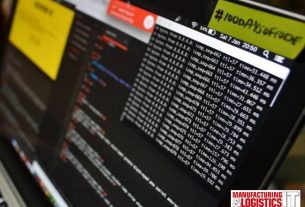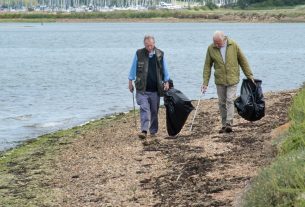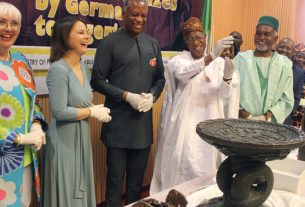Mozambique: Tens of Thousands Displaced by Renewed Insurgency in Cabo Delgado
Intensified conflict in Mozambique’s Cabo Delgado province has displaced nearly 60,000 people since July 20, according to the UN’s International Organization for Migration (IOM). The Chiúre district has been the epicentre, accounting for over 42,000 displaced, many of them children. Humanitarian efforts have reached approximately 30,000 with food, water, and shelter, the UN Office for the Coordination of Humanitarian Affairs (OCHA) reported. The ISIL-affiliated insurgency continues to destabilise the region, with a surge in child abductions exacerbating trauma among affected communities.
Sudan: Civil War Expands West Amid Accusations of Ethnic Cleansing and Foreign Interference
Fighting between the Sudanese Armed Forces (SAF) and the Rapid Support Forces (RSF) has escalated in western Kordofan and Darfur. The RSF, now accused of committing war crimes and ethnic cleansing in the Nuba Mountains, controls most of western Darfur. The Sudanese government has accused the UAE of financing foreign mercenaries—mainly from Colombia and neighbouring African countries—to support RSF operations. Rights groups warn that atrocities, including sexual violence and mass killings, constitute one of the worst humanitarian crises globally.
Kenya: Regional Neutrality in Question Amid Allegations of Hosting Rebel Leaders
Kenya faces mounting scrutiny over its role in regional peace efforts. Accused by Sudan, South Sudan, and the Democratic Republic of Congo (DRC) of harbouring opposition figures and rebels, Nairobi’s once-pristine peace-broker image is under threat. Critics argue that hosting peace talks while allegedly supporting insurgents undermines Kenya’s credibility and risks further regional destabilisation.
Nigeria: Insecurity and Floods Deepen Humanitarian Crisis
Mass abductions continue to plague Nigeria’s northwest, with at least 115 people kidnapped in Zamfara State over recent days. In Benue, sustained militia attacks have displaced over 210,000 people—primarily women who form the backbone of the agricultural economy. Concurrently, the Nigerian Meteorological Agency has issued flood alerts for 21 states, warning of heavy rains and overwhelmed drainage infrastructure. These compounding crises pose severe threats to food security and national stability.
Cameroon: Main Opposition Leader Barred from Presidential Race
Maurice Kamto, considered President Paul Biya’s most significant challenger, has been disqualified from the upcoming presidential race by Cameroon’s Constitutional Council. The move has triggered unrest and drawn criticism from civil society and opposition figures. Security forces deployed across Yaoundé to suppress protests, as political tensions rise ahead of the election.
Democratic Republic of Congo: Mass Killings by M23 Rebels Spark Calls for Justice
The UN has confirmed that M23 rebels, backed by Rwanda, killed at least 319 civilians—including women and children—in Rutshuru territory, North Kivu, in July. The attacks mark one of the deadliest incidents since M23’s resurgence in 2022. UN High Commissioner for Human Rights Volker Türk cited deliberate targeting of local farming communities and urged international accountability mechanisms to respond.
Central African Republic: Russia Pushes for Wagner Replacement, Payment Demands Spark Resistance
Moscow has asked the Central African Republic (CAR) to replace Wagner Group forces with its state-run Africa Corps and begin financial payments for continued security. CAR officials are reportedly resistant, preferring Wagner’s operational effectiveness and resource-based payment structure. Russia’s push marks a strategic shift following Wagner’s decline post-2023.
South Sudan: Peace Deal at Risk as Political Tensions Rise
The African Union is dispatching a delegation to Juba to salvage South Sudan’s 2018 peace agreement amid ceasefire violations and political arrests. Western diplomats have demanded the release of First Vice President Riek Machar, currently under house arrest, warning that the fragile peace deal risks collapse. Humanitarian groups report a surge in aid worker abductions and worsening violence across the country.
Ethiopia-Somalia Relations Improve After Mediation
Relations between Ethiopia and Somalia are stabilising following tensions over Ethiopia’s deal with breakaway Somaliland. The appointment of a new Ethiopian ambassador to Mogadishu signals progress under the Ankara Declaration, a Turkish-mediated agreement that recommitted both sides to dialogue and mutual respect of sovereignty.
Ghana: Leaders Killed in Helicopter Crash as Crypto Craze Raises Alarms
A military helicopter crash has claimed the lives of Ghana’s defence and environment ministers, among others. Meanwhile, the country’s youth face rising digital financial risks amid a booming yet unregulated cryptocurrency scene. The Bank of Ghana has pledged to begin licensing crypto platforms by September following a surge in online scams.
Uganda: Student Jailed Over TikTok Post as Free Speech Concerns Mount
A university student has been sentenced to two months in prison for posting a doctored video mocking President Yoweri Museveni. Rights groups warn of a shrinking media space as Uganda prepares for elections in 2026, with increasing prosecutions of online dissent.
Guinea: Government Revokes Emirati Bauxite License, Launches State-Run Company
Guinea has cancelled the mining licence of Emirates Global Aluminium’s subsidiary, Guinea Alumina Corporation, citing its failure to build a local alumina refinery. The state has taken full control of the mine, transferring operations to the newly formed Nimba Mining Company, a move likely to spark international arbitration.
Church in Africa Charts Long-Term Strategic Vision
The Symposium of Episcopal Conferences of Africa and Madagascar (SECAM) has adopted a 12-point roadmap to guide the Catholic Church’s role in social justice, peacebuilding, and community resilience across the continent through 2050. The plan highlights political instability, displacement, and weak governance as critical issues requiring moral and structural response.
DR Congo: Genocost Memorial Unveiled Amid Renewed Campaign for International Recognition
President Félix Tshisekedi marked the national Genocost Day on August 2 by calling on parliament to officially recognise the eastern Congo killings as genocide. A new memorial in Kinshasa commemorates the victims of decades of violence, with the president pledging to pursue international recognition under the UN Genocide Convention.
Source: africacenter.org



